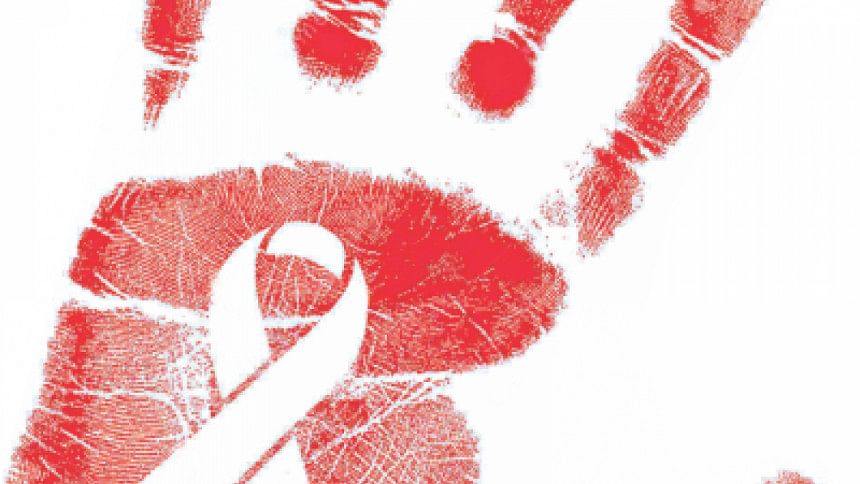Understanding HIV and AIDS

Human Immunodeficiency Virus (HIV) is a form of virus that may cause an infection, but AIDS is a condition or a syndrome. Being infected with HIV can lead to the development of AIDS, which stands for acquired immunodeficiency syndrome. AIDS develops when HIV has caused serious damage to the immune system.
AIDS is the final stage of an HIV infection, when your body can no longer fight life-threatening infections like pneumonia, tuberculosis and meningitis.
HOW IS HIV TRANSMITTED?
HIV is most commonly found in two bodily fluids - blood and genital fluids like semen. It is transmitted through sexual contact (e.g. intercourse via any route), parenteral exposure to contaminated blood, transfusion of infected blood, pricks or cuts by needles/blades that are contaminated by infected blood, sharing of needles/syringes (mainly by substance abusers) and from mother to child (while the child is in the womb, during labour and through breastfeeding).
HOW IS HIV NOT TRANSMITTED?
There is no risk of transmitting HIV through kissing, spitting, being bitten, being sneezed on or through mouth-to-mouth resuscitation. There is also no risk in sharing baths, towels, cutlery, or in using the same toilets or swimming pools. Contact with unbroken healthy skin and with animals/insects, too, does not result in the transmission of HIV.
SYMPTOMS TO LOOK OUT FOR
Symptoms can include fever, sore throat, body rash, tiredness, joint pain, muscle pain and swollen glands (lymph nodes). Once the immune system becomes severely damaged, symptoms can comprise weight loss, chronic diarrhoea, night sweats, skin problems, recurrent infections and serious life-threatening illnesses.
DIAGNOSING HIV
HIV can only be diagnosed through medical tests. If you think you might be at risk, you should immediately seek medical advice. The earlier HIV is diagnosed, the earlier you can start treatment, delay the severity of the illness and prevent the disease spreading to your near ones.
The most common form of HIV test is a blood examination, in which a small amount of blood
is taken
and tested for HIV. This can provide a reliable result within four weeks of exposure to HIV.
TREATING HIV
Unfortunately, there are still no cures for AIDS. However, there are treatments that can prolong life of people tested HIV positive and can help them lead a productive life.
PREVENTION OF HIV
HIV is widely spread through unscreened blood transfusion so it is essential that all blood is meticulously checked before transfusion.
A condom is the most effective form of protection against HIV and other STIs. It can be used for vaginal and anal sex, and for oral sex performed on men. HIV can be passed on before ejaculation, through pre-ejaculatory fluid and vaginal secretions, and from the anus. Safe sex should be practiced by people having risky sexual behaviours.
Needles/syringes should not be shared among substance abusers. Other injecting equipments such as spoons and swabs should not be shared either as this exposes one to HIV and other viruses found in the blood, such as hepatitis C.
Clean and sterile needles should be used while making tattoos.
HIV AND PREGNANCY
Treatment is available to prevent a pregnant woman from passing HIV to her unborn child. If left untreated, there is a one in four chance that the child will be infected with HIV. However, through proper medical care the risk can lowered to one in hundred.
Due to advances in medicine, there is no increased risk of passing the virus to your baby with a normal delivery. However, for some women, a caesarean section may still be recommended. If you have HIV, do not breastfeed your baby because the virus can be transmitted through breast milk. If you or your partner have HIV, speak to a doctor as there are options for safely conceiving a child without putting either of you at risk of infection.
World AIDS Day is observed on 1st December each year and is dedicated to raise worldwide awareness of the Acquired Immuno deficiency Syndrome (AIDS) pandemic caused by the spread of the Human Immunodeficiency Virus (HIV) infection. It is an opportunity for people worldwide to unite in the fight against HIV, show their support for people living with HIV and to remember the people who have died.
If you have any questions regarding gynaecology and reproductive health please mail to: [email protected]. All mail will be forwarded to the expert panel of Maya.com
www.maya.com.bd

 For all latest news, follow The Daily Star's Google News channel.
For all latest news, follow The Daily Star's Google News channel. 



Comments